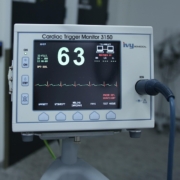The Power of Second Opinions: When and How to Seek Additional Medical Advice
In an era of readily available information and rapid technological advancements, navigating the world of healthcare can be both empowering and overwhelming. People often turn to the internet, social media, and various sources for medical information. However, amidst this flood of information, the role of professional medical advice remains indispensable. This article explores the significance of seeking professional guidance, the potential risks of self-diagnosis, and tips on how to effectively engage with healthcare providers.
The Vital Role of Medical Advice
Medical advice is essential for several reasons:
1. Expertise and Experience
Healthcare professionals, including doctors, nurses, and specialists, possess extensive training and experience that equip them to diagnose and treat a wide range of health issues accurately. They understand the complexities of human physiology, the nuances of various diseases, and the appropriate interventions needed for different conditions.
2. Personalized Care
Every individual is unique, and so are their health needs. A qualified healthcare provider can evaluate a patient’s medical history, symptoms, and lifestyle factors to deliver personalized care. This tailored approach often results in more effective treatment plans and better health outcomes.
3. Preventive Health Strategies
Healthcare professionals play a pivotal role in disease prevention. Regular check-ups, screenings, and immunizations can catch potential health issues early on, often before they escalate into severe conditions. Medical advice can also include valuable guidance on nutrition, exercise, and mental well-being, promoting holistic health.
The Risks of Self-Diagnosis
With the rise of online health resources, many individuals resort to self-diagnosis. While the internet can provide a wealth of information, it also harbors risks:
1. Misinterpretation of Symptoms
Self-diagnosis can lead to a misinterpretation of symptoms, resulting in unnecessary panic or misguided treatment approaches. For example, a headache could be attributed to a minor tension issue or something more serious, like a neurological condition. Without a professional evaluation, individuals could overlook critical symptoms.
2. Delayed Treatment
Relying on self-diagnosis can result in delays in receiving appropriate care. Time is often of the essence in medical situations, and postponing professional consultation might lead to disease progression and poorer health outcomes.
3. Misinformation and Outdated Guidelines
The quality of online health information can vary dramatically. Relying on outdated or inaccurate information can lead to harmful practices, such as using ineffective remedies or ignoring evidence-based treatments.
How to Effectively Engage with Healthcare Providers
To maximize the benefits of medical advice, it’s crucial for patients to engage effectively with their healthcare providers. Here are practical tips:
1. Be Open and Honest
When consulting with a healthcare professional, provide complete and honest information about your symptoms, medical history, and lifestyle. Transparency fosters a better understanding of your health and leads to more accurate diagnoses and treatment plans.
2. Prepare Questions
Before your appointment, prepare a list of questions or concerns. This ensures you cover all points of interest and maximizes your time with the healthcare provider.
3. Seek Second Opinions
If uncertain about a diagnosis or proposed treatment plan, don’t hesitate to seek a second opinion. This is a standard practice and can provide additional insight or alternative options for your health concerns.
4. Educate Yourself
While self-diagnosis is not advisable, being informed about your health conditions and treatment options is valuable. Ask your healthcare provider for credible resources and guidance on where to find reliable health information.
Conclusion
In summary, while the abundance of medical information available today can empower individuals, it is the expert advice of healthcare professionals that ultimately guides safe, effective health decisions. Understanding the importance of seeking professional medical advice, avoiding the pitfalls of self-diagnosis, and engaging effectively with healthcare providers can lead to optimal health outcomes. In a world where health is wealth, prioritizing informed and professional medical guidance is a step towards a healthier tomorrow.










